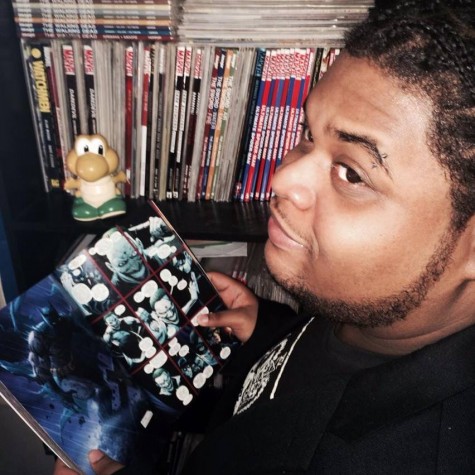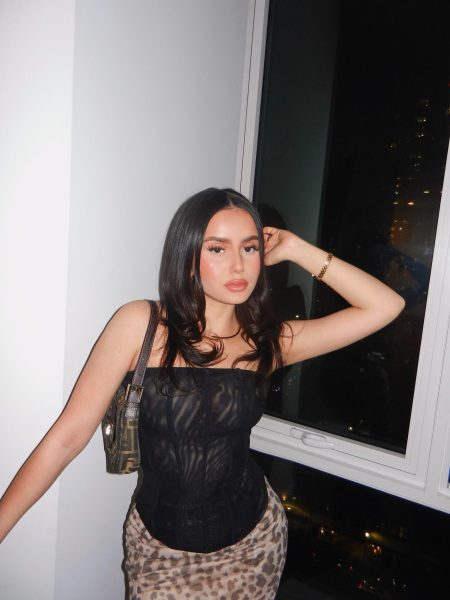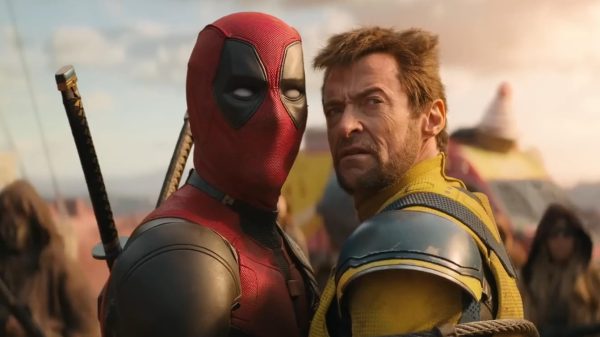Response: American Hustle Cannot Be A “Film Nior”
May 6, 2015
Although, I’ve only spent a brief few months learning about all the different aspects of film noir in my Dark Genres class, I can say with profound confidence that American Hustle is as close to a film noir as Pee-Wee’s Big Adventure.
Based on the given examples from class of film noir at its experimental phase to its baroque stage, American Hustle merely grazes what it takes to be a noir film. Critics constantly debate on what elements must be contained in a piece of cinema to declare it a true noir movie, and the elements usually consists of the characters in the film, the mood of the plot, and the style in which it’s shot.
In my honest opinion, a true noir film contains all three of these elements, or at the very least, relies heavily on two out of three.
American Hustle feature’s most of the stereotypical character’s seen in noir films, albeit at their bare minimum. You have Irving, (who is played by Christian Bale) a lonely man working a low level job who thinks he’s smarter than he actually is; falling in love with the wrong woman who could potentially and most likely be his downfall at the climax of the story. And then you have said woman, Sydney (played by Amy Adams), who serves as the Femme Fatale. Finally, you have the anomaly, FBI Agent Richie (played by Bradley Cooper), who, for all intents and purposes, could also serve as the protagonist since Sydney also serves as his Femme Fatale, and who also fills the same characteristics as Irving despite his profession. What makes both Irving and Richie special in terms of nior characters is that through the progression of the film, both of them constantly switch roles between protagonist and antagonist until the climax of the story; the only constant is Sydney. And then you have the several other parties who all serves as some sort of conflict, such as the FBI and the Mafia.
However, I’m afraid that’s where the similarities between film noir and American Hustle end.
Given the switches between protagonist and antagonist, the film never really focuses on one character as the definitive lead. Even a movie like Sin City, which is a neo noir film with several different stories, at least focuses on one definitive main character per story. Usually, whichever character does the narration in a noir film is the main character, but both Irving and Sydney narrate at certain moments. The mood of the plot/story isn’t in the least bit dark or gritty; and is only scarcely reflective of the time the film takes place (i.e. 1970’s Watergate and organized crime.)
This leads to the overall style of the film. The movie plays out more like a gangster flick more than anything. You have the timepiece, the style of clothing, and its disco/jazzy soundtrack. Not to mention, the mafia serves as a considerable conflict in the story. And who is the head man of this organization? Why, the king of gangster films of course, Robert De Niro himself. The way the movie is shot doesn’t hold up to the noir standard of low key lighting or extreme Dutch angles. And finally, the film ends with Irving as the protagonist and Richie vilified. This could also be seen as Richie fulfilling the role of the noir hero never winning, but I feel as though he solidified himself as the antagonist during the last 15 minutes of the movie.
With that in mind, that would allow Irving assume the role as protagonist, but in noir films, you get a happy ending, and Irving’s ending was almost perfect.






